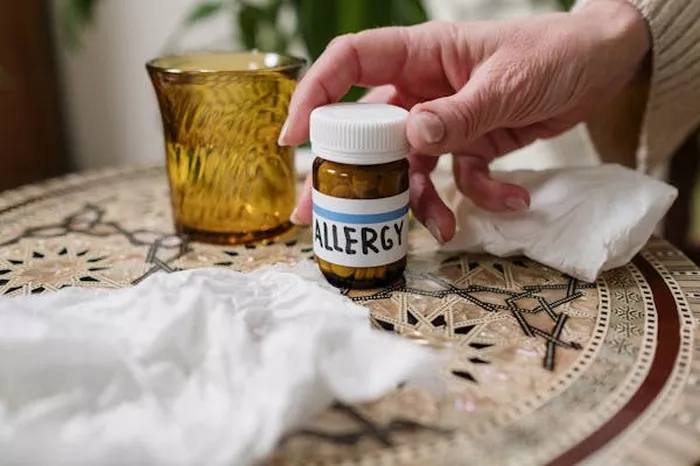Food allergies can provoke a wide range of symptoms, from mild irritations to severe, life-threatening reactions. Understanding how to manage these allergies is crucial for those affected and their caregivers. One common medication often discussed in the context of food allergies is Benadryl (diphenhydramine). This article explores the efficacy of Benadryl for food allergies, including how it works, when to use it, its limitations, and potential alternatives.
Understanding Food Allergies
What are Food Allergies?
Food allergies occur when the immune system mistakenly identifies a harmless food protein as a threat. This results in the release of histamines and other chemicals, leading to various symptoms. Common food allergens include:
- Peanuts
- Tree nuts
- Milk
- Eggs
- Fish
- Shellfish
- Soy
- Wheat
Symptoms of Food Allergies
The symptoms of food allergies can vary widely and may include:
Skin Reactions: Hives, rashes, or eczema
Gastrointestinal Symptoms: Nausea, vomiting, diarrhea, or abdominal cramps
Respiratory Issues: Nasal congestion, sneezing, difficulty breathing, or throat swelling
Anaphylaxis: A severe, life-threatening reaction that requires immediate medical attention and treatment
The Role of Histamines
Histamines are chemicals produced by the immune system during an allergic reaction. They are primarily responsible for the symptoms experienced during a food allergy. For instance, histamines can cause blood vessels to expand, leading to swelling and redness in the skin, or trigger bronchial constriction, resulting in difficulty breathing.
What is Benadryl?
Overview of Benadryl
Benadryl is an over-the-counter antihistamine, with diphenhydramine as its active ingredient. It is commonly used to treat allergic reactions, hay fever, insomnia, and motion sickness. Benadryl works by blocking the action of histamines at the receptor sites, thereby alleviating symptoms associated with allergic reactions.
Mechanism of Action
When a food allergen enters the body, the immune system reacts by releasing histamines. Benadryl counteracts this reaction by:
Blocking H1 Receptors: Benadryl binds to H1 receptors, preventing histamines from causing their typical effects, such as swelling and itching.
Reducing Symptoms: By inhibiting histamine action, Benadryl can help alleviate mild allergic symptoms, including skin rashes and nasal congestion.
Benadryl’s Effectiveness for Food Allergies
When is Benadryl Used?
Benadryl can be effective in managing mild to moderate allergic reactions caused by food allergies, such as:
Mild Skin Reactions: Hives or rashes
Nasal Congestion: Due to allergic rhinitis
Itching: Associated with allergic reactions
Limitations of Benadryl for Food Allergies
While Benadryl can provide relief for mild symptoms, it is essential to recognize its limitations:
Ineffectiveness Against Severe Reactions: Benadryl is not suitable for severe allergic reactions, such as anaphylaxis. In such cases, an epinephrine auto-injector (like an EpiPen) is necessary.
Delayed Action: Benadryl can take 30 minutes to 2 hours to become effective, which may not be suitable for rapid response during severe allergic reactions.
Side Effects: Common side effects of Benadryl include drowsiness, dizziness, and dry mouth, which can be problematic for some individuals.
Case Studies and Clinical Evidence
Several studies have investigated the role of antihistamines, including Benadryl, in managing allergic reactions:
A 2017 Study: This study examined the effectiveness of diphenhydramine in children with food allergies and found it effective in reducing mild symptoms but noted that it should not replace epinephrine for anaphylaxis management.
Patient Reports: Many patients report using Benadryl for mild allergic reactions but highlight the importance of having an epinephrine auto-injector on hand for emergencies.
Alternative Treatments for Food Allergies
Epinephrine Auto-Injectors
For individuals with severe food allergies, epinephrine auto-injectors are the first-line treatment for anaphylaxis. Epinephrine works rapidly to reverse severe symptoms, such as difficulty breathing, swelling of the throat, and drop in blood pressure.
Other Antihistamines
While Benadryl is a common choice, there are other antihistamines available that may be more suitable for specific situations:
Cetirizine (Zyrtec): Non-drowsy and long-lasting
Loratadine (Claritin): Non-drowsy with fewer sedative effects
Fexofenadine (Allegra): Effective for allergies without causing drowsiness
Immunotherapy
Immunotherapy is a long-term treatment option that involves gradually desensitizing the immune system to specific allergens. This approach may help reduce the severity of allergic reactions over time.
Recommendations for Food Allergy Management
Creating an Allergy Action Plan
For individuals with food allergies, having a personalized allergy action plan is essential. This plan should include:
Identifying Allergens: Clearly list foods to avoid.
Emergency Contacts: Include contact information for healthcare providers and emergency services.
Emergency Medications: Ensure access to an epinephrine auto-injector and instructions for its use.
Reading Labels
Always read food labels carefully to identify potential allergens. Look for warnings about cross-contamination and be cautious with processed foods.
Communicating with Others
Inform friends, family, and restaurant staff about your food allergies to ensure they can help prevent exposure. Consider carrying a medical alert bracelet for emergencies.
When to Seek Medical Help
Recognizing Severe Symptoms
It is crucial to recognize when to seek medical help for food allergies:
Symptoms of Anaphylaxis: Difficulty breathing, swelling of the throat, rapid heartbeat, or severe drop in blood pressure.
Persistent Symptoms: If symptoms do not improve with Benadryl or other antihistamines, seek medical attention immediately.
Emergency Services
In the event of a severe allergic reaction, use an epinephrine auto-injector immediately and call emergency services for assistance.
See Also: 10 Fastest Way to Get Rid of Food Allergies
Conclusion
While Benadryl can be an effective treatment for mild allergic symptoms resulting from food allergies, it is not a substitute for emergency treatment in severe cases. Understanding its limitations, recognizing the signs of severe reactions, and having an allergy management plan in place is crucial for individuals with food allergies. Always consult a healthcare professional for personalized advice and treatment options.
This comprehensive understanding of Benadryl’s role in managing food allergies equips individuals with the necessary information to navigate their conditions effectively and safely.
You Might Be Interested In:


